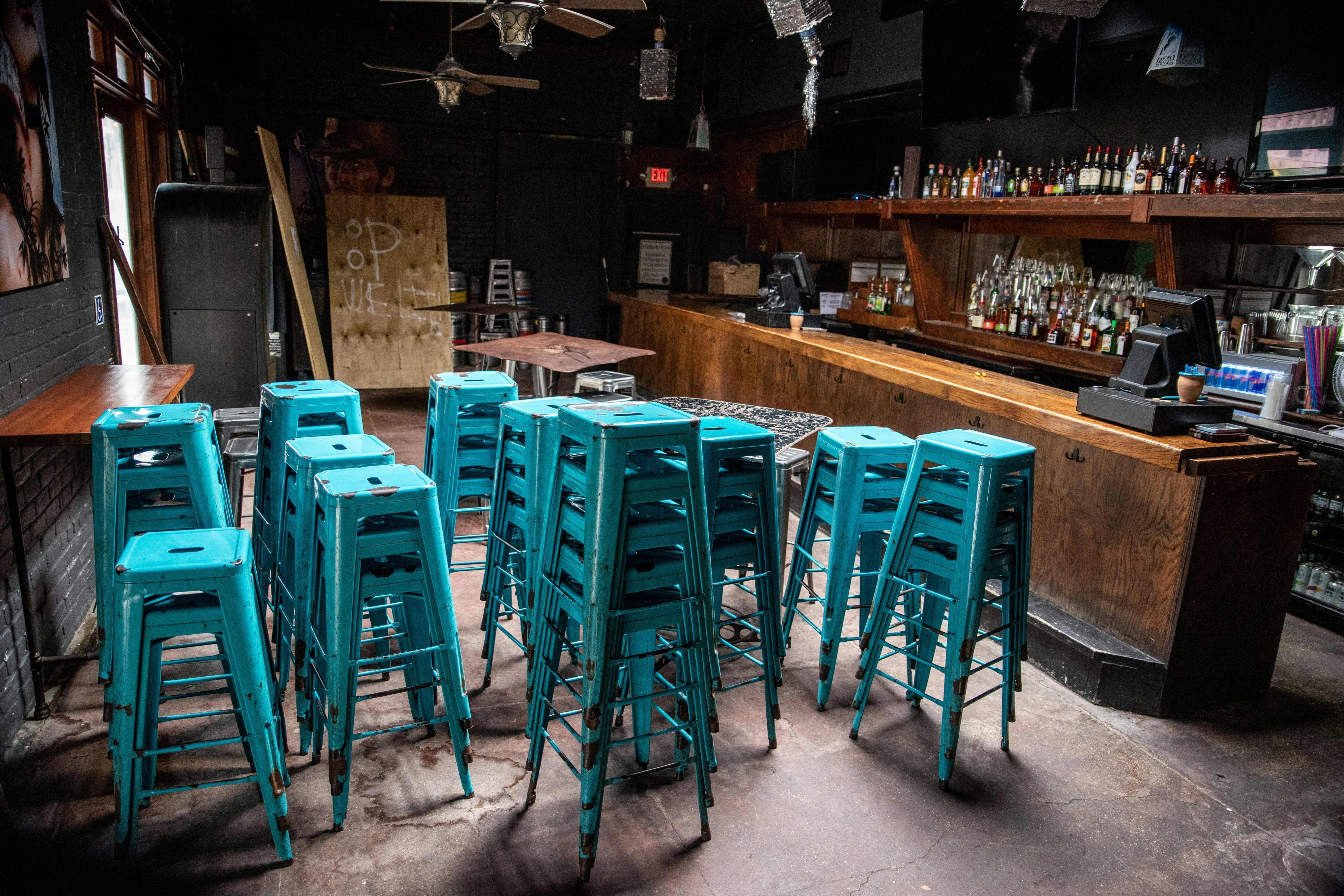The United States has a long history of bailing out critical industries in times of crisis: railroads, automakers, airlines, banks. At various times, Washington has swooped in to salvage them all.
And now it may be time for another targeted bailout. For the sake of public health, and public morale, Congress needs to save America’s drinking establishments. We need a national bar rescue.
As the coronavirus crisis has worn on, it has become increasingly clear that allowing bars and night clubs to reopen is simply not safe, because they are the exact sort of crowded indoor environments full of people loudly shouting, singing, and swapping respiratory droplets through which the disease spreads most easily. It’s widely believed that allowing people to back into their favorite watering holes fueled the recent explosion of COVID-19 cases across the South and West, and at least nine different states, including hot spots Arizona, Texas, and Florida, have been forced to shut bars back down to try to contain their outbreaks. Late last month, Texas Gov. Greg Abbott admitted that if he “could go back and redo anything, it probably would have been to slow down the opening of bars.” Anthony Fauci, the government’s lead infectious disease expert, was even more blunt during a Senate hearing a few days later. “Bars: really not good, really not good,” he said. “Congregation at a bar, inside, is bad news. We really have got to stop that.”
The problem with shutting bars and nightclubs down indefinitely is that it would put many of them out of business permanently. And so long as bar owners are worried about going bankrupt, and bartenders are worried about losing their jobs, they are going to put political pressure on local elected officials to let them reopen, whether or not its actually safe. There was, I kid you not, a “Bar Lives Matter” protest in Texas at the end of June. We can expect plenty of that if the nation’s karaoke lounges and pubs have to stay shuttered for next four to six months.
The obvious solution to this bind is to bail the bars out. Give them money so that they can cover their expenses, including rent, even while they are shut down. That way, mayors and governors will no longer face a choice between containing the virus and sentencing beloved local businesses to likely death.
Congress has, of course, already created programs meant to help small businesses survive our national bout with the plague. Unfortunately, they’ve turned out to be poorly tailored for establishments that are required to shut down entirely during an extended period of time. The Paycheck Protection Program requires businesses to spend most of the money they borrow paying their workers if they want to qualify for loan forgiveness, which doesn’t necessarily leave enough for rent. Businesses can borrow money with fewer restrictions through the Economic Injury Disaster Loan program, but they have to pay it back, and it’s unclear how many bars and clubs would be able to survive post-pandemic while being burdened with signifiant debt.
One promising idea floating in Congress right now is the RESTART Act, a bipartisan proposal written by Sens. Michael Bennet, a Democrat from Colorado, and Todd Young, a Republican from Indiana. It would offer small and midsize businesses that have suffered serious sales drops low-interest loans to cover up to six months of payroll and other costs, including rent and utilities. But the debt would be forgiven based on how much their revenues declined, and borrowers wouldn’t be required to keep their staff on payroll if they weren’t actually open. A bar that was completely shut down and bringing in no money could use the cash to pay its landlord and still have 90 percent of its debt canceled.
RESTART is designed to help all types of businesses, not just your corner sports bar or favorite rock club. But it’s sadly unclear if Congress will be willing to pass such an expansive program in the next relief bill. If it isn’t, it would still make sense to enact a narrower version aimed at bars, clubs, restaurants (since indoor dining could still be problematic), and other specific businesses that we need to keep partially or entirely shut down for the sake of combating COVID. In all likelihood, a targeted bar rescue wouldn’t be that pricey. Whereas more than 4 million small and midsize businesses borrowed money through the Paycheck Protection Program, there are only about 66,000 bars and clubs in the entire United States, according to the American Nightlife Association.
And it would be money well spent. Bars and clubs play an outsize role in the spread of the coronavirus, which means paying to keep them shut down makes sense. They also play an outsize role in the cultural and social lives of our cities and towns, which means we have a good reason to keep them on life support. I, for one, want to be able to go and grab a beer at my favorite dive when this whole nightmare is finally over.
